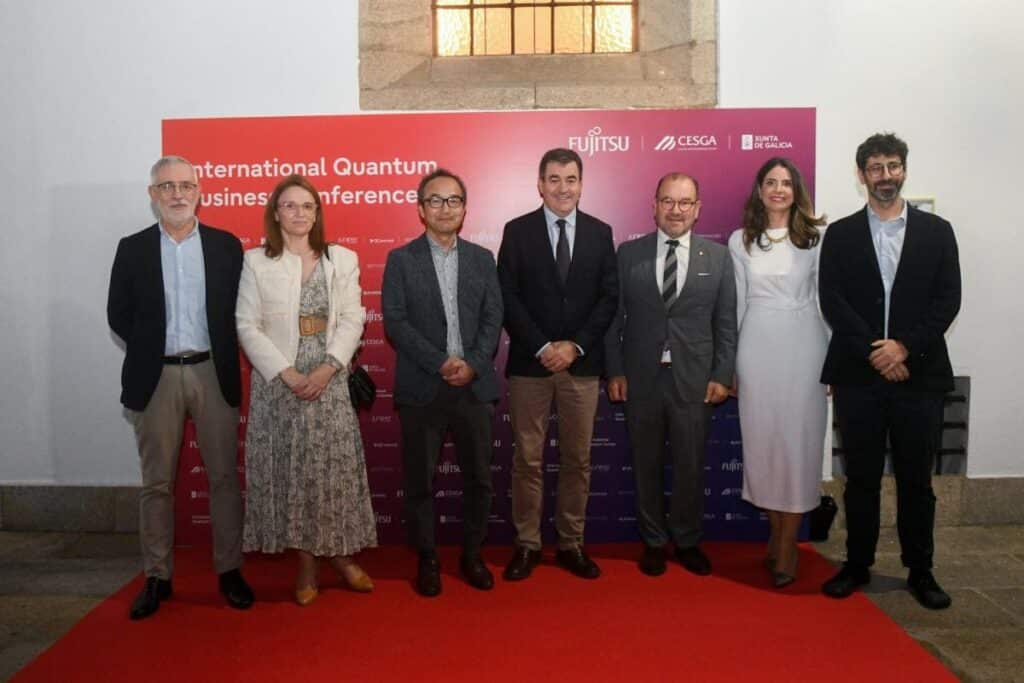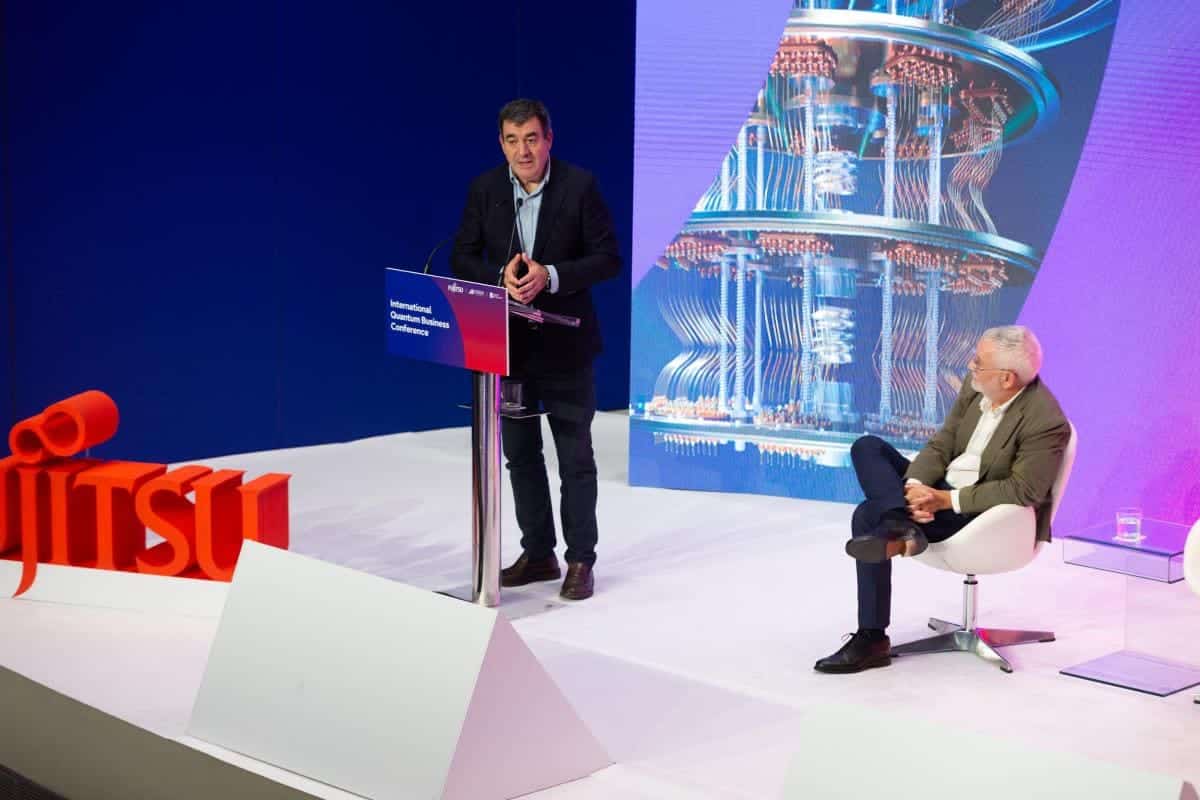The Minister of Education, Science, Universities and Vocational Training, Román Rodríguez, closed the International Quantum Business Conference, an event that brought together more than 300 professionals from 13 countries specializing in quantum technologies. The conference, organized by Fujitsu in collaboration with the Galician Supercomputing Center (CESGA) and the Xunta de Galicia, represents an important step in consolidating Galicia as a benchmark in quantum computing development.
Román Rodríguez expressed his confidence that this meeting will not only put Galicia on the map in quantum computing, but will also attract new projects and investments that will strengthen the position of the autonomous community in the scientific and technological field. The Minister highlighted the transformative impact of quantum technologies, which will enable solving complex problems, improving industrial competitiveness, and accelerating the development of emerging technologies in key sectors.
Galicia’s pioneering role in quantum
Galicia has been a reference in quantum research in recent years, with significant investments such as the Quantum Technologies Hub and the installation of the quantum computer Qmio at CESGA, which with its 32 qubits is the most powerful quantum computer in southern Europe in a public institution. Minister Rodríguez emphasized the importance of this type of infrastructure to attract talent, promote research, and generate new opportunities for the local industry.
Furthermore, Galicia has established the Galician Network of Quantum Technologies, an initiative that seeks to bring together the main actors in the R&D&I ecosystem in the region, designing a common roadmap to boost the development of this technology in the industrial and academic fields. This public-private collaboration is essential to maximize Galicia’s technological capabilities and maintain its leadership in the sector.
International commitment and strategic collaborations
During the conference, which continued with presentations and roundtable discussions on the state of quantum computing and its applications, Román Rodríguez highlighted the importance of continuing to strengthen international collaboration. “This is a decisive moment to position Galicia as a leader in quantum technologies, and we must work closely with other countries and regions to keep advancing,” he said.
One of the key moments of the event was the announcement of the construction of a new headquarters for the CESGA in the A Sionlla industrial estate, with an investment of 56 million euros, the largest in the center’s history. This new technological infrastructure will be a fundamental pillar to consolidate Galicia’s role in quantum research and facilitate collaboration with companies and research centers at both national and international levels.
Fujitsu and Galicia: a quantum future
The event also featured the participation of prominent representatives from the international quantum ecosystem, such as the Fujitsu Quantum Lab and the Silicon Valley Forum, among others. Carmen Cotelo Queijo, director of the Galicia Innovation Agency, summarized the region’s potential with a clear phrase: “Galicia sounds like quantum.”
Quantum computing is seen as a revolutionary technology that will enable solving problems that currently have no solution and significantly reducing calculation times and energy consumption. Gonzalo Romeo Martínez, general director of Platform Business Spain at Fujitsu, emphasized that Europe is well positioned to compete with the United States and China in this field, but that it is necessary to invest in research, knowledge, and training to not miss the train of this disruptive technology.
On the other hand, Shintaro Sato, vice president and head of Fujitsu’s Quantum Laboratory, pointed out that while the U.S. currently leads quantum development, this is a long-term race and collaboration between companies, researchers, and academics will be key to success. Fujitsu, for its part, is working on innovative developments such as quantum error correction and plans to launch superconducting quantum computers with up to 256 qubits in 2025 and more than 1,000 qubits in 2026.
A promising future for the European economy
The director of the Fujitsu International Quantum Centre, Almudena Justo Martínez, highlighted the enormous economic potential of quantum computing, which could contribute up to 850 billion euros to the European economy in the next 15 to 30 years, according to a report led by Mario Draghi, former president of the European Central Bank. Justo emphasized the importance of creating a quantum ecosystem involving companies, researchers, and universities to accelerate the development of these technologies.
The celebration of the International Quantum Business Conference in Santiago de Compostela reinforces Galicia’s commitment to establish itself as a benchmark in quantum computing development and marks the beginning of a new era in which collaboration, investment, and talent will play a crucial role in turning this potential into a tangible reality.


